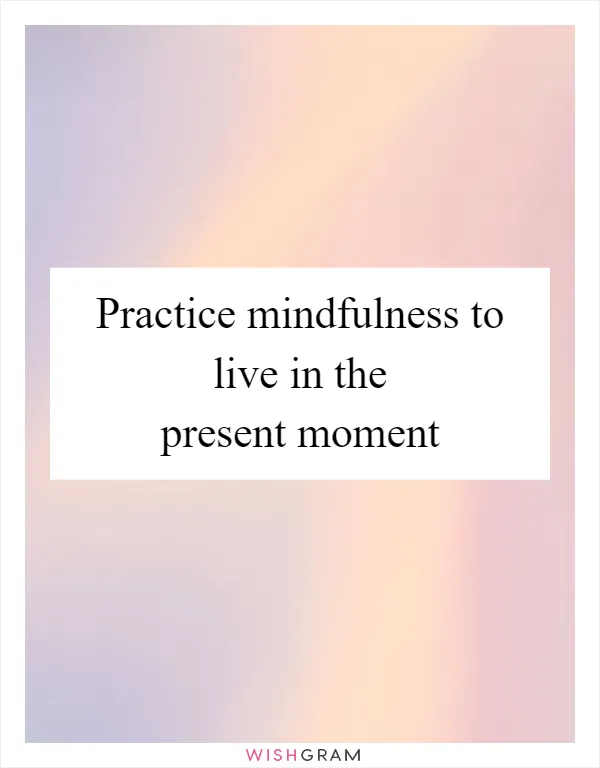Practice mindfulness to live in the present moment
In the realm of self-improvement, one concept that has gained significant attention and recognition is the practice of mindfulness. Mindfulness, at its core, is the art of living in the present moment, fully aware of our thoughts, feelings, and sensations without judgment. It is a powerful tool that allows individuals to cultivate a deeper sense of self-awareness, enhance their overall well-being, and foster personal growth.
In today's fast-paced world, it is easy to get caught up in the whirlwind of thoughts about the past or worries about the future. However, by practicing mindfulness, we can break free from this cycle and truly experience the richness of the present moment. It enables us to appreciate the beauty of life's simple pleasures, such as the warmth of the sun on our skin, the sound of birds chirping, or the taste of a delicious meal.
Living in the present moment through mindfulness also helps us develop a greater sense of gratitude. By consciously acknowledging and appreciating the blessings in our lives, we shift our focus from what we lack to what we have. This shift in perspective can have a profound impact on our overall happiness and contentment.
Moreover, mindfulness allows us to cultivate a deeper connection with ourselves and others. By being fully present in our interactions, we can listen attentively, empathize genuinely, and communicate effectively. This fosters stronger relationships, as we become more attuned to the needs and emotions of those around us.
Practicing mindfulness also has numerous benefits for our mental and physical well-being. Research has shown that it can reduce stress, anxiety, and depression, while improving focus, memory, and cognitive abilities. By training our minds to be present, we can better manage our emotions, respond to challenges with clarity, and make more informed decisions.
Incorporating mindfulness into our daily lives does not require elaborate rituals or extensive training. It can be as simple as taking a few moments each day to focus on our breath, observe our surroundings, or engage in activities mindfully. Whether it's savoring a cup of tea, going for a walk in nature, or practicing yoga, these small acts of mindfulness can have a profound impact on our overall well-being.
To truly embrace the practice of mindfulness, it is essential to cultivate a non-judgmental attitude towards ourselves and our experiences. We must let go of the constant need for perfection and instead embrace our imperfections and vulnerabilities. By doing so, we create a safe space for self-reflection, growth, and self-compassion.
